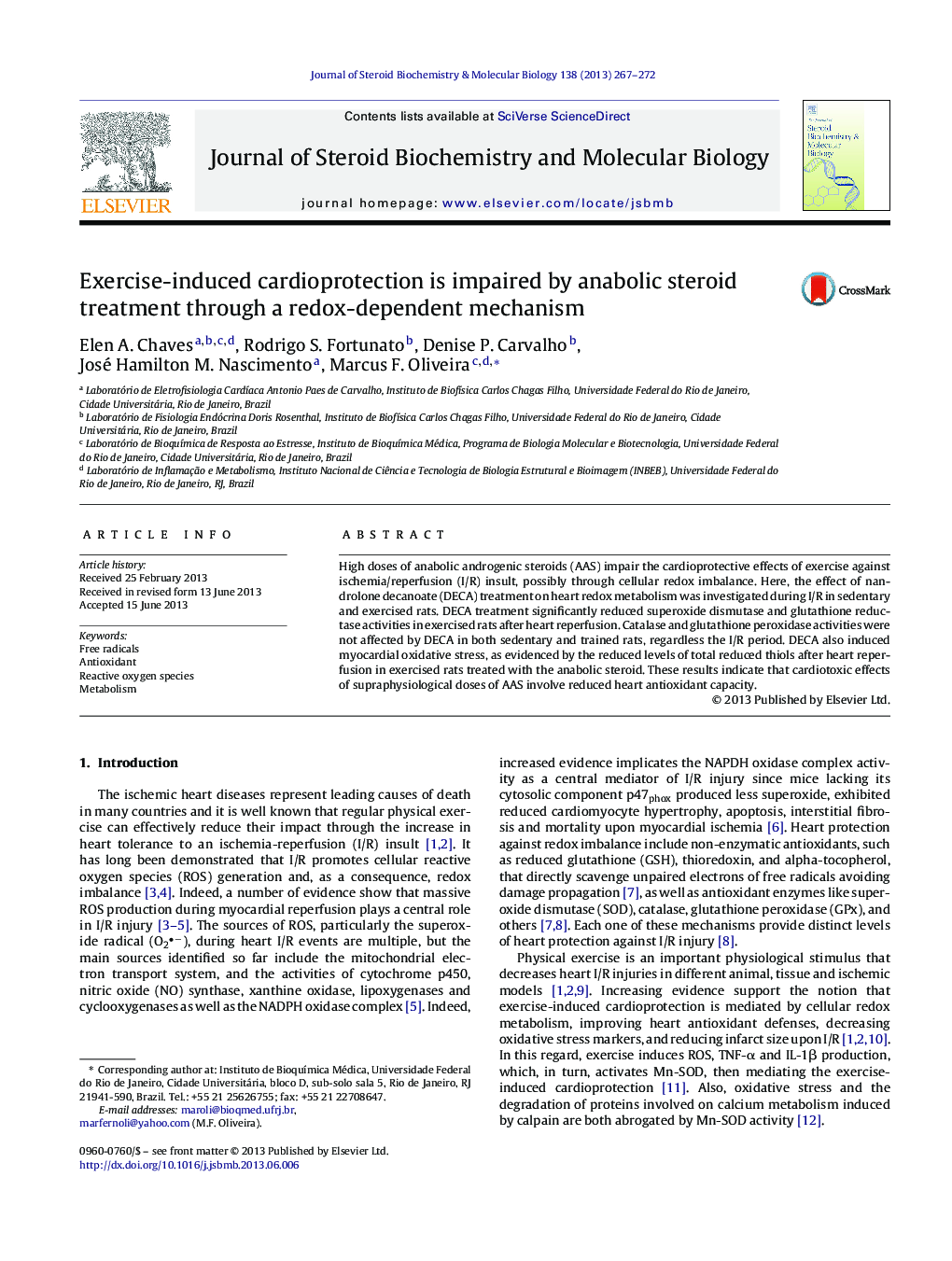| Article ID | Journal | Published Year | Pages | File Type |
|---|---|---|---|---|
| 8338987 | The Journal of Steroid Biochemistry and Molecular Biology | 2013 | 6 Pages |
Abstract
High doses of anabolic androgenic steroids (AAS) impair the cardioprotective effects of exercise against ischemia/reperfusion (I/R) insult, possibly through cellular redox imbalance. Here, the effect of nandrolone decanoate (DECA) treatment on heart redox metabolism was investigated during I/R in sedentary and exercised rats. DECA treatment significantly reduced superoxide dismutase and glutathione reductase activities in exercised rats after heart reperfusion. Catalase and glutathione peroxidase activities were not affected by DECA in both sedentary and trained rats, regardless the I/R period. DECA also induced myocardial oxidative stress, as evidenced by the reduced levels of total reduced thiols after heart reperfusion in exercised rats treated with the anabolic steroid. These results indicate that cardiotoxic effects of supraphysiological doses of AAS involve reduced heart antioxidant capacity.
Related Topics
Life Sciences
Biochemistry, Genetics and Molecular Biology
Biochemistry
Authors
Elen A. Chaves, Rodrigo S. Fortunato, Denise P. Carvalho, José Hamilton M. Nascimento, Marcus F. Oliveira,
